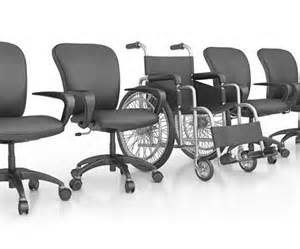 In Michaelin Higgins-Williams V. Sutter Medical Foundation, the plaintiff made the argument that working under her supervisor, and with the HR person, caused her anxiety and stress, a disabling condition protected by California’s Fair Employment and Housing Act (which is similar to the ADA). The plaintiff was hired as a clinical assistant to work as a “floater” during patient intake. For 4 years she reported to her supervisor, Norma Perry. In June 2010, she reported to her physician she was stressed because of interactions at work with human resources and her manager. She was diagnosed as having adjustment disorder with anxiety.
In Michaelin Higgins-Williams V. Sutter Medical Foundation, the plaintiff made the argument that working under her supervisor, and with the HR person, caused her anxiety and stress, a disabling condition protected by California’s Fair Employment and Housing Act (which is similar to the ADA). The plaintiff was hired as a clinical assistant to work as a “floater” during patient intake. For 4 years she reported to her supervisor, Norma Perry. In June 2010, she reported to her physician she was stressed because of interactions at work with human resources and her manager. She was diagnosed as having adjustment disorder with anxiety.
Based on this diagnosis, Sutter granted her twelve weeks protected leave under the CFRA and FMLA. Upon her return from that leave, she received a negative performance evaluation and other actions which once again increased her anxiety. As an accommodation, she asked for a transfer to another department and some time off. Sutter granted her the additional time off, but not the transfer request. This charade went on back and forth for several months until she was finally informed that she would not be transferred and would not be provided with additional leave. In total she had been given 5 months of additional leave beyond that required by the FMLA. Her only option was to return to work which she did not do. So she was fired.
Ms. Higgins-Williams sued, claiming a violation of disability accommodation law and retaliation. Fortunately for Sutter, and every other employer, the court ruled in the company’s favor. The court stated “An employee’s inability to work under a particular supervisor because of anxiety and stress related to the supervisor’s standard oversight of an employee’s job performance does not constitute a disability.” While we can hear a collective sigh of relief from employers, the only caveat is the language set forth indicating that the manager engaged in “standard oversight of the employee’s job performance”. The ruling may have been different, however, if the supervisor or manager was a bully, harasser, etc.





